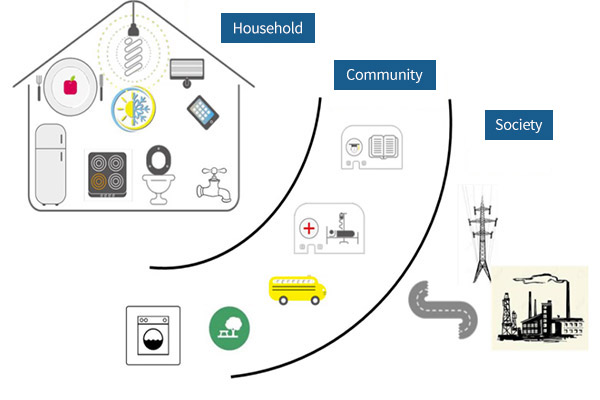Decent Living Standard Gaps
Version 1.0 — Standards are defined below.
Note: for Transport data, instead of per-country data the regional average is displayed for each country within a region.
Citation: Kikstra, J., A. Mastrucci, J. Min, ND Rao. Decent living gaps and energy needs around the world. Env Res. Ltrs. doi
About Decent Living Standards
Current measures of human development, such the Human Development Index (income, life expectancy, literacy), or the Multidimensional Poverty Index (MPI) inadequately measure the extent of human deprivation, particularly with regard to the means that enable basic human well-being. These requirements need to be available and affordable to all.
We propose a Decent Living Standard, which entails material requirements at the household, community and national scale.
For more details on the rationale for these standards see:
Rao, N.D. & Min, J. (2017). Decent living standards: material prerequisites for basic human wellbeing. Social Indicators Research, 1-20

Defining the Decent Living Standards
- Transport: Travel with motorized transport to meet basic mobility needs (>23km/day)
- Clean cooking: Primary use of gas or electric cook stoves
- Cold storage: Refrigerator ownership
- Television: Television ownership
- Mobile phone: Mobile phone ownership (proxy for access to ICT/Internet)
- Water access: Access to piped water on premise or other improved drinking water source (as per World Bank definition)
- Sanitation: Access to sanitation facilities that ensure hygienic separation of human excreta from human contact (as per World Bank definition)
- Nutrition: Access to minimum dietary calorie requirements (as per Food and Agricultural Organization (FAO) guidelines
- Education: Completed primary and lower secondary education
- Housing: Minimum of 10 sq. meters per capita of space with safe construction
- Cooling: Access to fans or A/C required to keep temperature and humidity comfortable (18-26C, 45-65% humidity)